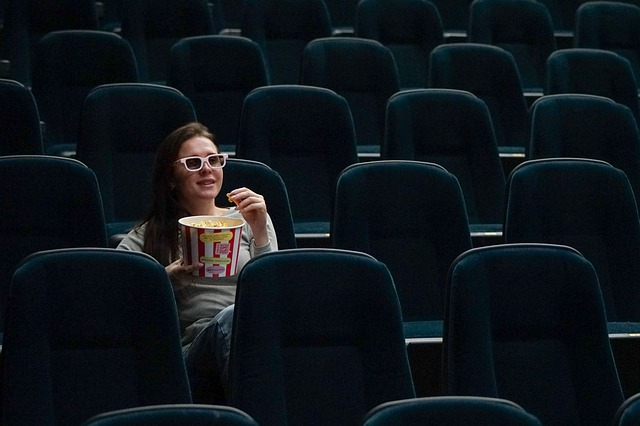Explore 2025 entertainment trends in the US — from AI-driven content creation and streaming wars to the growing influence of gaming and immersive experiences.
The entertainment industry in 2025 is defined by digital innovation and changing audience habits. Streaming services continue to compete fiercely, social media platforms are reshaping content discovery, and emerging technologies like AI and immersive media are transforming how stories are made and consumed. According to Deloitte’s 2025 Media Outlook, generative AI is weaving through nearly every aspect of content creation and distribution. Audiences (especially younger demographics) want both bite-sized video and blockbuster experiences, often on mobile or social platforms. This article examines major entertainment trends – from streaming and AI to gaming and social media – that are driving the U.S. entertainment sector in 2025.
Streaming and Digital Media
The “streaming wars” remain a centerpiece. Major players (Netflix, Disney+, Amazon Prime, etc.) are investing in original content to retain subscribers. At the same time, ad-supported streaming and shareable social video are booming. Deloitte notes that social video advertising is expected to grow by about 20% and now represents the largest category in digital advertising. Viewers are watching content on smartphones, tablets, and connected TVs more than ever, often multitasking with second screens.
Key points:
-
Ad-supported growth: With more ad tiers and new platforms, video streaming ads are expanding. The connected-TV (CTV) market is also surging as viewers shift from live TV.
-
Content diversity: Consumers want a mix of genres and formats. Short-form content (like TikTok-style videos) goes viral quickly, while long-form movies and series still draw millions of viewers. Studios are using cross-promotion (games, spin-offs) to build engagement across formats.
Industry move: We can expect more partnerships and M&A as companies consolidate content libraries and technology (e.g., streaming services bundling video, music, and gaming subscriptions).
AI in Content Creation
Artificial intelligence is playing a growing role behind the scenes. From scriptwriting assistants to AI-generated visual effects, studios are exploring AI to speed up production and lower costs. Deloitte reports that nearly all media companies are exploring generative AI applications. For instance, AI can help storyboard scenes or edit footage using machine learning.
Impacts:
-
Efficiency: AI-driven tools can automate mundane tasks (e.g., editing, color correction, even initial drafting of outlines), freeing creators to focus on higher-level storytelling.
-
New art forms: Experimental AI-generated music and art are emerging (for example, fully AI-composed soundtracks or deepfake actors in commercial projects). This raises creative and ethical questions about originality.
Caveat: While AI opens possibilities, there is concern about “AI slop” – low-quality content flooding platforms. Future regulations or industry standards may be needed to distinguish human-made from AI-made media.
Gaming and Interactive Entertainment
Gaming is now a core part of entertainment. Deloitte forecasts that gaming will converge increasingly with traditional video entertainment. The same game engines used to develop blockbuster games are now used in filmmaking (for virtual sets, immersive scenes, and real-time animations). This blending means story worlds can span films, TV, and games seamlessly.
Highlights:
-
Esports & live events: Competitive gaming (esports) draws massive online audiences and sponsorships, rivaling sports viewership. Studios and sports leagues are investing in gaming events to engage younger fans.
-
VR/AR: Virtual reality and augmented reality experiences are becoming more mainstream. Theme parks, concert venues, and gaming companies are creating immersive experiences (e.g., VR concerts, location-based AR games).
-
Social gaming: Games today are often social platforms. Features like cross-play and in-game chat have made games social hubs, rivaling social media. This stickiness keeps players engaged for years.
Example: The next-generation consoles (expected around 2025) and high-end PC/VR gear will push photo-realistic graphics. Expect AAA game releases that also tie into movies and TV, creating huge multimedia franchises.
Social Media and Content Discovery
Social platforms continue to influence what content gets attention. Short video apps (like TikTok, Instagram Reels) help songs, films, and trends go viral overnight. Creators on YouTube and Twitch are now stars on par with traditional celebrities.
Trends:
-
Influencer impact: Brands and networks collaborate with influencers to market new shows and products. Audience trust in peer recommendations is high, so influencer endorsements can make or break a release.
-
User-generated content (UGC): Platforms that let fans create and share their own content (remixes, fan art, live streams) thrive. Studios sometimes encourage UGC to promote engagement (e.g., fan contests, interactive storytelling experiences).
-
Short-form vs. long-form: Both continue to grow. According to Deloitte, the market for short-video is booming thanks to data-driven targeting, while demand for premium long-form content remains strong (especially among older demographics).
Ultimately, 2025’s entertainment consumption is fragmented across platforms. Companies need multi-channel strategies to reach audiences on streaming apps, social video, games, and more.
Conclusion
The U.S. entertainment industry in 2025 is a dynamic blend of technology and creativity. Companies that leverage AI and data analytics for targeted content, embrace new platforms (social media, gaming), and offer immersive experiences will capture the changing audience. Professionals in media should focus on cross-platform storytelling and innovation.

